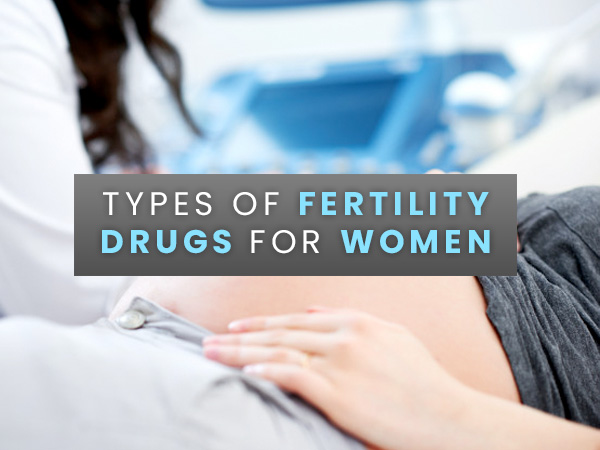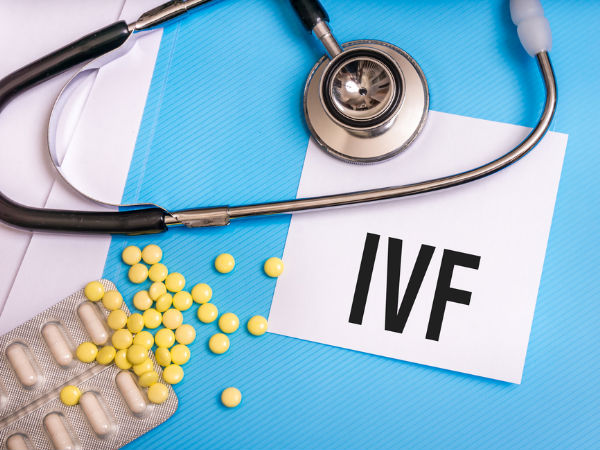Just In
- 1 hr ago

- 1 hr ago

- 5 hrs ago

- 11 hrs ago

Don't Miss
- Movies
 Chief Detective 1958 Episode 2 OTT Release Date, Time, Platform: When & Where To Watch? What To Expect? DEETS
Chief Detective 1958 Episode 2 OTT Release Date, Time, Platform: When & Where To Watch? What To Expect? DEETS - Sports
 IPL 2024: LSG vs CSK Award Winners, Man of The Match, Post-Match Presentation, Scorecard & Records
IPL 2024: LSG vs CSK Award Winners, Man of The Match, Post-Match Presentation, Scorecard & Records - News
 Chinese President Xi Jinping Orders Biggest Military Reorganisation Since 2015
Chinese President Xi Jinping Orders Biggest Military Reorganisation Since 2015 - Education
 Exam Pressure Does Not Exist; Studying Punctually is Crucial; Says Aditi, the PSEB 2024 Topper
Exam Pressure Does Not Exist; Studying Punctually is Crucial; Says Aditi, the PSEB 2024 Topper - Finance
 Reliance, ONGC, Tata, Adanis: Energy Stocks Didn't Get The Memo Of Bears, Up 12% In 30-Days; 10 Stocks To BUY
Reliance, ONGC, Tata, Adanis: Energy Stocks Didn't Get The Memo Of Bears, Up 12% In 30-Days; 10 Stocks To BUY - Automobiles
 Suzuki Swift Hatchback Scores 4 Star Safety Rating At JNCAP – ADAS, New Engine & More
Suzuki Swift Hatchback Scores 4 Star Safety Rating At JNCAP – ADAS, New Engine & More - Technology
 Dell Introduces AI-Powered Laptops and Mobile Workstations for Enterprises in India
Dell Introduces AI-Powered Laptops and Mobile Workstations for Enterprises in India - Travel
 Journey From Delhi To Ooty: Top Transport Options And Attractions
Journey From Delhi To Ooty: Top Transport Options And Attractions
Fertility Drugs For Women: Types Available In India And Side Effects
If you are trying to get pregnant for a while now without any success, you may be directed by your doctor to consider fertility treatments. Fertility drugs are the first step in treating fertility problems and are available for both women and men.
This article will cover Fertility Drugs for Women, the types available in India, and the possible side effects of these fertility drugs.

Fertility Drugs For Women: How Does It Work?
Fertility drugs work by increasing certain hormones that help mature and release one or more eggs each month. If you ovulate rarely or irregularly, fertility drugs could help you conceive [1].
Some of the fertility drugs are orally administered. At the same time, some are injected and work in the same way by promoting the release of hormones that, in turn, commence the ovulation process. Fertility drugs are an important part of assisted conception treatments, such as IVF [2].
If a woman cannot get pregnant or continues to have miscarriages after trying to conceive for 12 months or longer, she may be recommended fertility treatment. For women over 35, many doctors recommend seeking treatment after six months of trying to conceive.
Types Of Fertility Drugs For Women
Many types of fertility medications for women are available today. It is important to only take fertility medication under the supervision of a fertility specialist or other medical professional because, while the majority of the fertility drugs are safe and effective, some can result in side-effects [3].

The most popular fertility drugs for women (in India) are as follows:
- Clomiphene citrates such as Clomid and Serophene
- Gonadotrophins such as Antagon, Pergonal, Repronex and Menopur
- Dopamine agonists such as Bromocriptine and Cabergoline
- Heparin drugs such as Hep-Lock or Liquamin
- Metformin hydrochloride
- Follistim or Gonal-F
- Pregnyl
- Profasi
- Novarel
(1) Clomiphene citrate (Clomid and Serophene): These type of fertility drugs works by making your body 'believe' that the oestrogen levels are low and thereby stimulates the FSH or follicle-stimulating hormone and LH or the luteinizing hormone - the ones necessary for successful conception [4]. Side effects include nausea, vomiting, mood swings, irritability, a feeling of tenderness in the breasts, hot flashes, and vaginal dryness. In some cases, it can cause multiple pregnancies, such as twins (4-10 per cent) and triplets (1 per cent).
(2) Gonadotrophins (Antagon, Pergonal, Repronex and Menopur): These type of fertility drugs are injected and enhances the production of the LH and FSH hormones. Gonadotrophins are prescribed for women whose ovulation must be regulated for other treatments and in chemotherapy cases (as it shuts down the pituitary gland, stopping ovulation). The common side effects are headache, insomnia, hot flashes and vaginal dryness [5].
(3) Dopamine agonists: These are recommended for women who have too much of the hormone prolactin, which reduces hormone oestrogen levels, thereby making it difficult to get pregnant [6]. When used during assisted conception treatments, such as IVF, dopamine agonists can also reduce the risk of an ovarian hyper-stimulation syndrome (causes the ovaries to swell) [7]. Common side effects include confusion, leg swelling, excessive sleepiness, compulsive behaviours (rare).

(4) Heparin drugs (Hep-Lock or Liquamin): These fertility drugs are injected to lower the risk of miscarriage in women who suffer from blood-clotting disorders, a common cause of infertility [8]. Side effects include back, stomach pain, hair fall, skin rashes, heavy bleeding, and high potassium levels in the blood have also been recorded.

(5) Metformin hydrochloride: This drug is primarily used for diabetes treatment and can also be used to treat ovulation problems in women with polycystic ovary syndrome (PCOS) [9]. The tablets work by lowering insulin circulating levels in the blood, which can help promote normal ovulation. Side effects include physical weakness, diarrhoea, gas, muscle pain, low blood sugar, abdominal pain etc.
(6) Follistim or Gonal-F: A synthetic version of the natural FSH, this follicle-stimulating hormone cause the eggs to mature and stimulates the development of multiple eggs for a successful IVF [10]. Possible side effects include headache, muscle ache, mood swings such as high irritability and tenderness of breasts.
(7) Pregnyl, Profasi and Novarel: These fertility drugs work in the same way. They stimulate the maturation of the eggs and get them released from the follicle by promoting the hCG hormone production in the system. Possible side effects include nausea, vomiting and abdominal pain.
Note: Your doctor will inform you about the possible side effects of these drugs. If you find yourself struggling and in excessive discomfort or pain, get immediate medical attention.
On A Final Note...
Women who do not have regular periods and women with medical conditions that could affect pregnancy, such as UTIs, obesity, BP etc., should talk to a doctor before trying to get pregnant.
-
 healthSolar Eclipse 2024: Dos and Don'ts for Pregnant Women During Surya Grahan
healthSolar Eclipse 2024: Dos and Don'ts for Pregnant Women During Surya Grahan -
 healthLunar Eclipse 2024: Dos And Don'ts For Pregnant Woman During Chandra Grahan
healthLunar Eclipse 2024: Dos And Don'ts For Pregnant Woman During Chandra Grahan -
 fashionDeepika Padukone-Ranveer Singh Announce Pregnancy: 6 Maternity Outfit Ideas For The Modern Mom-to-Be
fashionDeepika Padukone-Ranveer Singh Announce Pregnancy: 6 Maternity Outfit Ideas For The Modern Mom-to-Be -
 healthLate Singer Sidhu Moose Wala's Mother Is Pregnant Through IVF, Know What It Is And How To Prepare For It
healthLate Singer Sidhu Moose Wala's Mother Is Pregnant Through IVF, Know What It Is And How To Prepare For It -
 insyncVirat Kohli And Anushka Sharma Name Their Baby Boy 'Akaay', Know What This Beautiful Name Means?
insyncVirat Kohli And Anushka Sharma Name Their Baby Boy 'Akaay', Know What This Beautiful Name Means? -
 pregnancy parentingMaternal Health Awareness Day 2024: 15 Foods That Boost Maternal Health
pregnancy parentingMaternal Health Awareness Day 2024: 15 Foods That Boost Maternal Health -
 pregnancy parentingFrom Contractions To Water Breaking: Knowing When It's Time For The Hospital During Pregnancy
pregnancy parentingFrom Contractions To Water Breaking: Knowing When It's Time For The Hospital During Pregnancy -
 pregnancy parentingBirth Control Pills Can Affect This Primary Function In Women: Find Out What
pregnancy parentingBirth Control Pills Can Affect This Primary Function In Women: Find Out What -
 pregnancy parentingTwo Wombs, Four Hearts: US Mom's Extraordinary Double Uterus Pregnancy
pregnancy parentingTwo Wombs, Four Hearts: US Mom's Extraordinary Double Uterus Pregnancy -
 healthExclusive: A Pregnant Mom Can Posses These Maternal, Fetal Health Risks If Exposed To Air Pollution
healthExclusive: A Pregnant Mom Can Posses These Maternal, Fetal Health Risks If Exposed To Air Pollution -
 pregnancy parentingDelhi Air Pollution: Pregnant Women Must Follow These 4 Things!
pregnancy parentingDelhi Air Pollution: Pregnant Women Must Follow These 4 Things! -
 pregnancy parentingDelhi Air Quality Crisis: How Air Pollution Can Affect Unborn And Newborn Babies? Precaution Tips For Pregnant
pregnancy parentingDelhi Air Quality Crisis: How Air Pollution Can Affect Unborn And Newborn Babies? Precaution Tips For Pregnant


 Click it and Unblock the Notifications
Click it and Unblock the Notifications



